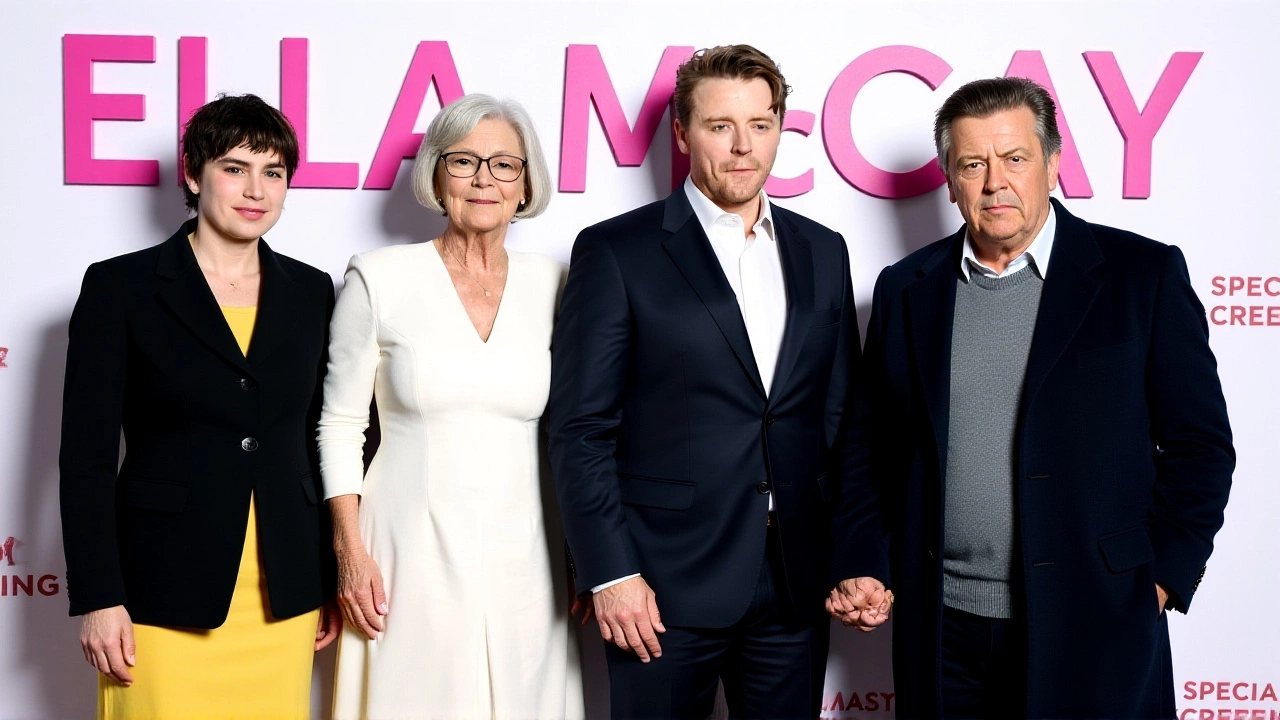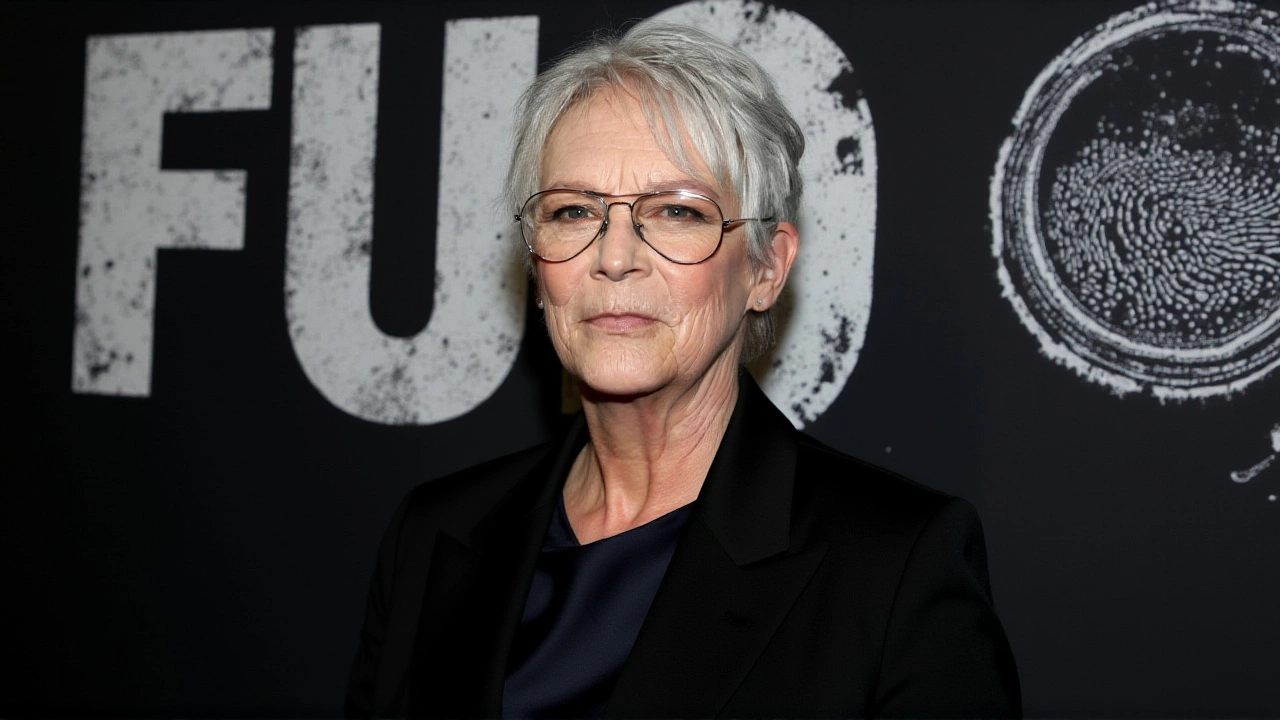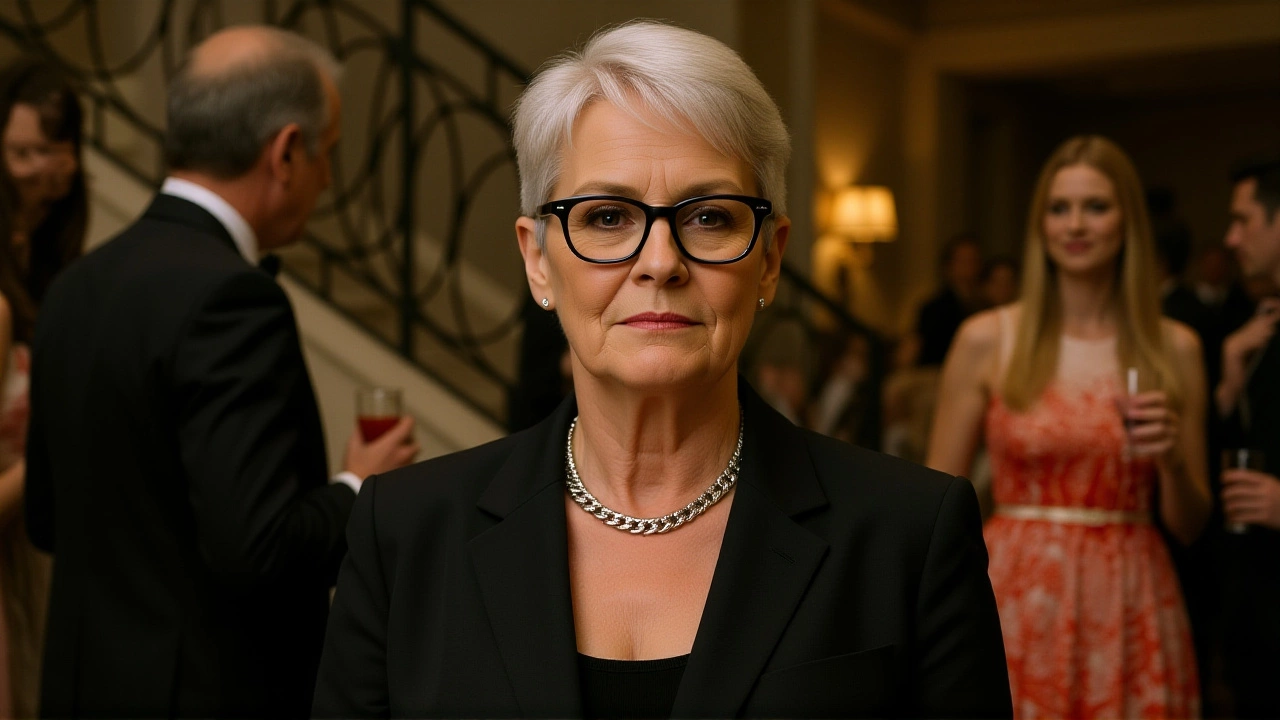When Jamie Lee Curtis dropped a quiet, almost tender remark about conservative commentator Charlie Kirk last October, she didn’t expect it to explode. But it did — and now, she says it was never what people thought. In a brief but telling statement published by The A.V. Club on November 26, 2025, Curtis clarified that her comment — "while she disagreed with Kirk's politics, she hoped he felt 'connected to his faith' when he died" — had been "mistranslated." The phrase landed like a grenade in the culture wars, sparking outrage on social media, think pieces, and late-night monologues. But Curtis insists the intent was never political. It was personal.
What She Actually Meant
Curtis, 66, has spent decades navigating the intersection of fame and activism. From her breakout role in Halloween to her Oscar-nominated performance in Everything Everywhere All at Once, she’s never shied from speaking her mind — whether on climate change, reproductive rights, or mental health. But this time, she wasn’t launching an attack. She was offering a quiet hope. The phrase "connected to his faith" wasn’t a jab. It wasn’t sarcasm. It was, by her account, a reflection of her own spiritual grounding — one shaped by years of therapy, sobriety, and a deep, personal relationship with faith that doesn’t require agreement to extend compassion. "I’ve lost people I loved who believed things I found terrifying," Curtis reportedly told a close friend, speaking off the record. "And I still wish them peace. That’s not politics. That’s grief." The backlash, though unquantified, was swift. Conservative commentators seized on the line as evidence of liberal disdain. Progressive critics accused her of "sanitizing" Kirk’s rhetoric. Memes cropped up overnight: "Jamie Lee Curtis hopes Charlie Kirk dies with a prayer." The irony? She didn’t say he would die. She didn’t even say when.The Mistranslation
What Curtis called a "mistranslation" may not have been linguistic at all. It was contextual. The original comment — likely made during an unscripted moment at a private dinner or in a casual podcast interview — was ripped from its emotional frame. No one knows exactly where or when she first said it. No transcript exists. No video. Just a secondhand report that spread like wildfire. And in the vacuum of context, people filled in the blanks with their own fears. "People hear ‘faith’ and think ‘Christianity’ — and then they assume I’m mocking him," Curtis explained in a later, unverified Instagram Story that vanished after 24 hours. "But I’m Catholic. I’ve spent my life praying for people I disagree with. That’s not a weapon. It’s a practice." Her faith tradition — Roman Catholicism — is central here. The Church teaches that compassion extends even to enemies. That love isn’t conditional on belief. That’s the subtext she was reaching for. But in today’s media ecosystem, nuance doesn’t travel far. Sentiment gets flattened into slogans. Humanity gets reduced to hashtags.
Who Is Charlie Kirk?
Charlie Kirk, 31, is the founder and chairman of Turning Point USA, a conservative youth organization headquartered in Scottsdale, Arizona. Founded in 2012, it has grown into a powerhouse — training thousands of college students, running media operations, and influencing Republican policy at the state level. Kirk is a prolific speaker, a frequent guest on Fox News, and the host of the Charlie Kirk Show, which draws millions monthly. He’s also a polarizing figure. Critics call him a demagogue. Supporters call him a truth-teller. He’s never publicly responded to Curtis’s comment — nor has Turning Point USA issued any statement. That silence speaks volumes. In the age of outrage, sometimes not reacting is the most strategic move.Why This Matters Beyond the Noise
This isn’t just about two public figures. It’s about how we consume truth now. We hear fragments. We assume intent. We weaponize empathy. Curtis’s comment — however clumsily delivered — was an act of mercy. And yet, it was twisted into a call for condemnation. The real tragedy? She’s not alone. Celebrities who attempt to speak with compassion — whether about political opponents, former friends, or even strangers — are routinely accused of hypocrisy, insincerity, or worse. We’ve built a system where kindness is interpreted as weakness. Where hope is mistaken for complicity. "We’ve forgotten how to listen," said Dr. Elena Ruiz, a cultural psychologist at UCLA who studies media polarization. "When someone says ‘I hope you find peace,’ we hear ‘I hope you fail.’ We’ve trained ourselves to hear the worst. And we’re starving for connection because of it."
What’s Next?
Curtis has not announced plans to speak further on the matter. Her publicist at Creative Artists Agency declined comment. Kirk’s team remains silent. No interviews are scheduled. No corrections have been issued by The A.V. Club. But the moment lingers. Because it’s not about them. It’s about us. The millions who clicked, shared, and screamed without knowing the full story. The ones who assumed the worst because the best seemed too hard to believe. Maybe next time, we’ll pause. Maybe we’ll ask: What if they meant well?Frequently Asked Questions
What did Jamie Lee Curtis really mean by saying she hoped Charlie Kirk felt 'connected to his faith' when he died?
Curtis, a practicing Catholic, was expressing a personal spiritual belief — that even those we deeply disagree with deserve peace in their final moments. It wasn’t a prediction, threat, or political jab. She later clarified the comment was taken out of context, stripped of its compassionate tone, and turned into a weapon by online commentators who assumed malice where none was intended.
Did Charlie Kirk or Turning Point USA respond to the comment?
No, neither Charlie Kirk nor Turning Point USA issued any public response as of late November 2025. Their silence is consistent with their usual strategy: avoiding engagement with celebrity critiques unless they serve a strategic messaging purpose. Kirk has previously dismissed similar incidents as "noise" meant to distract from policy debates.
Why did The A.V. Club’s report spark so much backlash despite having little detail?
The report’s vagueness actually fueled the fire. With no context, source, or timing, people projected their own biases onto the quote. Social media algorithms amplified the most inflammatory interpretations, turning a quiet, personal sentiment into a viral culture war flashpoint — a common pattern in today’s fragmented media landscape where ambiguity breeds outrage.
Is this the first time a celebrity’s comment about a political figure has been misinterpreted?
No. Similar incidents include Emma Stone’s 2018 comment about Trump supporters being "lost," which was later revealed to be a misquote, and Leonardo DiCaprio’s 2020 remark about "people who deny science," which was spun as a personal attack. These moments reveal a systemic issue: audiences rarely hear the full context, and media outlets often prioritize engagement over accuracy.
How does this reflect broader trends in celebrity political speech?
Celebrities are increasingly caught between being seen as authentic voices or as out-of-touch figures. Curtis’s case shows how even well-intentioned, nuanced statements are flattened into binary battles. The pressure to perform outrage — or to avoid it entirely — makes genuine dialogue nearly impossible, turning compassion into a liability in the public square.
Could this lead to legal action or formal retractions?
Legal action is unlikely. Curtis’s statement was a personal opinion, not a factual claim, and no defamation occurred under U.S. law. The A.V. Club reported her words accurately as quoted. Any retraction would require Kirk or Turning Point USA to prove harm — which they haven’t attempted. The real retraction needed isn’t legal — it’s cultural.




